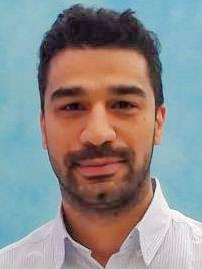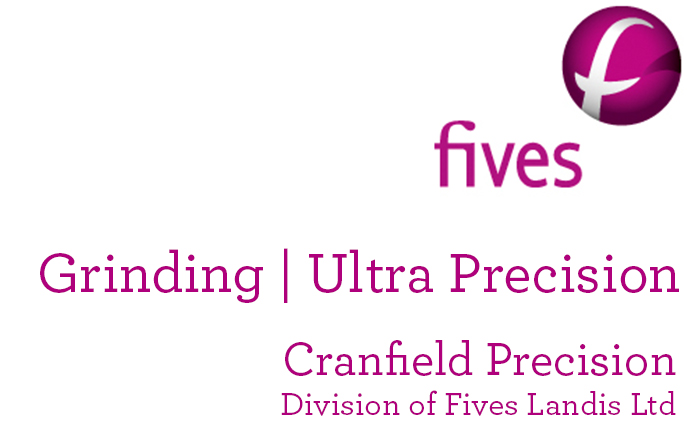Project Description
Special Interest Group Meeting: Thermal Issues
13th – 14th March 2024
Special Interest Group Meeting: Thermal Issues
Park Plaza Eindhoven, The Netherlands
13th – 14th March 2024
Thermal effects are regarded as a major contributor to errors on precision equipment, instruments and systems within precision engineering.
Measurement is becoming even more important as workpiece tolerances decrease, as thermal effects not only use a larger part of the tolerances, but also influences repeatability, long term stability and general issues such as “lifetime” and “process-quality” of machine tools and measuring equipment. In the work-place of today, these play an important role in high-throughput production equipment and many scientific instruments e.g. operating at cryo-genic and Ultra-high vacuum.
We were delighted to bring together leading expertise globally to an open forum for focused presentations and discussions on thermal issues. This includes manufacturing, temperature control in electric mobility (windmills), cryogenic vacuum and scientific instrumentation within large science projects.
We are seeking papers in the following categories:
1. Measurement of thermal influences in production equipment, process and product
- Understanding the machines thermal behaviour and the errors on the machined workpiece follows a deep understanding and evaluation of the thermal chain of causes and the error sources
- Equipment and methods for direct and indirect measurements
2. Modelling and model reduction techniques
- Modelling of temperature and deformation fields: lumped-mass, structural FE, CFD
- Reduction of multi-physics models, reducing complexity and size
- Thermal mode shapes (temperature and deformation): Eigen-modes, POD-modes, FRF-based modes
3. Compensation and correction of thermal effects (e.g. Artificial Intelligent algorithms and techniques)
- Reducing thermal errors of machines based on control theory
- Input data and sensor data processing, modelling techniques and actuator control
- Implementation in machine controls and manufacturing planning
4. Design principles for thermally robust production equipment (e.g. Machine Elements, Machine Structures)
- The enhancement of machine positioning based on high precision machine design principles. These aim to reduce either the generation of temperature gradients or the deformation sensitivity of the machine structure to them. (Characteristic examples of current research: Heat pipes, Phase-change materials, cooling systems, heat accumulators)
5. Test workpieces and assessment
- Methods for evaluating thermal errors of machines by manufactured testworkpieces, design of testworkpieces, manufacturing strategies and evaluation approaches
6. Thermo-energetic design
- Design, correction or compensation measures that satisfy the conflicting goals of reducing energy consumption and increasing accuracy and productivity in machining
7. Temperature measurement & control
- Accurate and fast temperature measurement in scientific and industrial environment
- Control algorithms, thermal actuation
- Thermal system identical measurements (model measurements)
- Challenges under cryogenic conditions
The local hosts and organising committee supporting euspen for this Special Interest Group meeting on Thermal Issues are :- Dr Gorka Aguirre, IDEKO, ES; Dr Otakar Horejš, Czech Technical University in Prague, CZ; Prof. Andrew Longstaff, University of Huddersfield, UK; Dr Josef Mayr, ETH Zürich, CH and Prof. Maarten Steinbuch, Eindhoven University of Technology, NL.
The Thermal Issues meeting chair is Prof. Andrew Longstaff from University of Huddersfield, UK.
Key Dates
26th January 2024: Online abstract submission deadline
29th January 2024: Notification of presentation (oral/poster)
29th January 2024: Registration opens
Registration Fees
Fees and information about the Thermal Issues meeting.
euspen member and non-members fees are inclusive of the networking dinner.
- €195+VAT – euspen Student members*
- €450+VAT – euspen member
- €550+VAT – Non-euspen members
- €650+VAT – Exhibitor
- €45+VAT – Student Networking Dinner
* Student members fee is not inclusive of the networking dinner.
All speakers and presenters must register for the conference using the appropriate delegate fee.
Registration
Euspen events comply with international VAT/IVA/VAT MOSS rules. As such the relevant Standard VAT dependent upon the Country hosting the event.
The euspen SIG meeting on Thermal Issues takes place in the Netherlands and as such the relevant Standard Dutch VAT of 21% will be applied to all delegate registration invoices.
Select Credit Card if you would like to pay by credit card :-
Select Invoice if you would like to pay by invoice :-
- A valid Purchase Order (PO) number is required to guarantee payment.
- An administration fee of €30 will be applied.
- All invoices must be settled prior to attendance of the event. If the invoice remains outstanding at the point of attendance, the delegate will be required to pay the invoice via credit card before admittance.
- Your completed form should be sent to info@euspen.eu and an invoice will be sent to you manually.
Exhibitors
Founded in 1968 at Cranfield University, Cranfield Precision is now part of the Fives group of companies.
Fives is headquartered in Paris and has around 8000 employees worldwide. We specialise in the design and development of diamond turning and grinding machines for a wide range of industries.
Our standard range of machines includes:
- TTG350: A unique, patented machine for the grinding of spheres, aspheres and freeforms up to 350 mm diameter.
- A recent development of the TTG machine uses its inherent flexibility and stability to enable the economic manufacture of high and ultra precision bearings races.
- OGM (Off axis Grinding Machine): For freeform optical components up to 2 m diameter
- EcoR1664: A diamond turning machine custom designed for the manufacture of ultra precision drums used in the manufacture of optical films.
In 2019, Cranfield Precision became the R&D centre for the Grinding-Ultra Precision group, which has around 800 employees.
For more information, visit: www.fivesgroup.com
Submit an abstract for Thermal Issues 2024
We are delighted to bring together leading expertise globally to an open forum for
focused presentations and discussions on thermal issues.
Announcement & Call for Abstracts
Come and join your international peers and maintain a leading edge on technology, customers, partners and suppliers. Access the greatest minds in working within the field of thermal issues research and development. Share knowledge and information and stimulate debates.
Themes :-
- Measurement of thermal influences in production equipment, process and product
- Modelling and model reduction techniques
- Compensation and correction of thermal effects (e.g. Artificial Intelligent algorithms and techniques)
- Design principles for thermally robust production equipment (e.g. Machine Elements, Machine Structures)
- Test workpieces and assessment
- Thermo-energetic design
- Temperature measurement & control
Submission of abstracts
Abstracts are expected to describe original work, previously unpublished and should indicate new and significant advances and their importance. Short abstracts will be accepted. You should use the links above to submit your abstract.
Following review of all abstracts authors will be notified of their presentation mode (poster/oral). The final decision on acceptance of all papers is made by the Editor and Scientific Committee of the SIG meeting.
The invitation to submit an abstract does not constitute an offer to pay travel, accommodation or registration costs associated with the conference. Similarly, no speaker fee is paid to successful participants. All speakers must register for the conference and transfer registration fee. In specific cases the organising committee reserves the right to deviate from the standard procedure.
Keynotes

Zafer Turhan
ASML, NL
Next Phase in ASML’s Digital Engineering: Modular-Swift-Precision Modelling
ASML designs and manufactures one of the most technologically advanced and complex machines humans have ever built. Developing such machinery needs an extreme collaboration between different clusters and disciplines. Parallel to this complexity, ASML’s ambitions towards 2030 are high with faster development, integration and learning cycles. Customers are in need of better lithography and metrology machines in time that are reliable to keep up with world’s hunger for more advanced chips on all fronts. This puts an extremely important role on ASML engineering to be more robust, connected and efficient within its product development cycle.
Digital Modelling has already been the engineering tooling since long years at ASML however when it is not interconnected, modular and fast it is only solving part of engineering problems at a limited scale and speed. In an era where time is as valuable as accuracy, Modular Swift-Precision Modelling emerges as a digital modelling approach, blending rapid computational speed with high-precision modelling. The keynote speech at the euspen Thermal Issues Group Meeting will introduce and explore the transformative capabilities of modelling in ASML’s engineering domain.
Modular Swift-Precision Modelling represents a shift in engineering modelling. It integrates the comprehensive detail of high-fidelity engineering simulations with the agility of fast-system modelling, enabling engineers to achieve accurate results at speeds previously unimaginable. This talk will unveil the intricacies of the approach, emphasizing its potential to significantly shorten design cycles while enhancing the accuracy of predictions and analyses at higher level system scale.
Practical applications across some ASML use cases, specifically within thermal domain, including design, integration, validation and machine control will be highlighted. These case studies will demonstrate this method’s claim for effectiveness in optimizing processes, improving system performances, and driving innovation at ASML.
The keynote will also delve into ecosystem of Modular Swift-Precision Modelling. We will discuss the evolving landscape, the ongoing advancements in computational technology, digital processes to keep up with the exploding variants and datasets and the skill sets necessary to leverage the approach effectively. The speech aims to inspire engineers, industry leaders and academic partners to embrace similar novel approaches in digital modelling.
Biography
Zafer Turhan, born and raised in Ankara – Türkiye, has forged a distinguished 17-year career in engineering. His academic journey began at Hacettepe University where he pursued Nuclear Engineering, followed by a master’s degree in mechanical engineering from the Middle East Technical University.
Zafer’s professional path started as a mechanical design engineer. Over time, his focus shifted towards simulation engineering and management, particularly in the thermal and fluid dynamics domains and its applications in various companies and industries like defense, semiconductors, residential heating solutions and pharmaceutical temperature control within different countries. In 2016 during his time at Bosch, he became a DRBFM – Level 4 Design review expert/coach where trained and certified many engineering experts on functional decomposition and engineering risk assessment.
Zafer joined ASML in 2018 as a senior thermal analyst. He currently serves as a Group Manager for Simulations in the Mechanical Development Cluster. In addition to this role, he also leads the Digital Modeling processes for the Mechanical Development (MDEV) cluster.
His areas of interest are thermal multiphysics models, reduced order models, system simulations, digital modelling and its industrial applications.


